The 29th UN Climate Change Conference (COP29) in Baku, Azerbaijan, saw Ethiopia taking a leading role in global climate action. The Ethiopian delegation, led by H.E. President Taye Atske-Selassie, highlighted the nation’s commitment to sustainable development and climate resilience. Over the past decade, Ethiopia has successfully balanced rapid economic development with advancing environmental sustainability.
Ethiopia has been working towards making its agricultural practices more sustainable. The climate-resilient wheat production project has yielded 107 million quintals of wheat over three years. This initiative not only boosts food security but also showcases the country’s resilience and adaptability to climate change, as highlighted by H.E. President Taye at COP29.
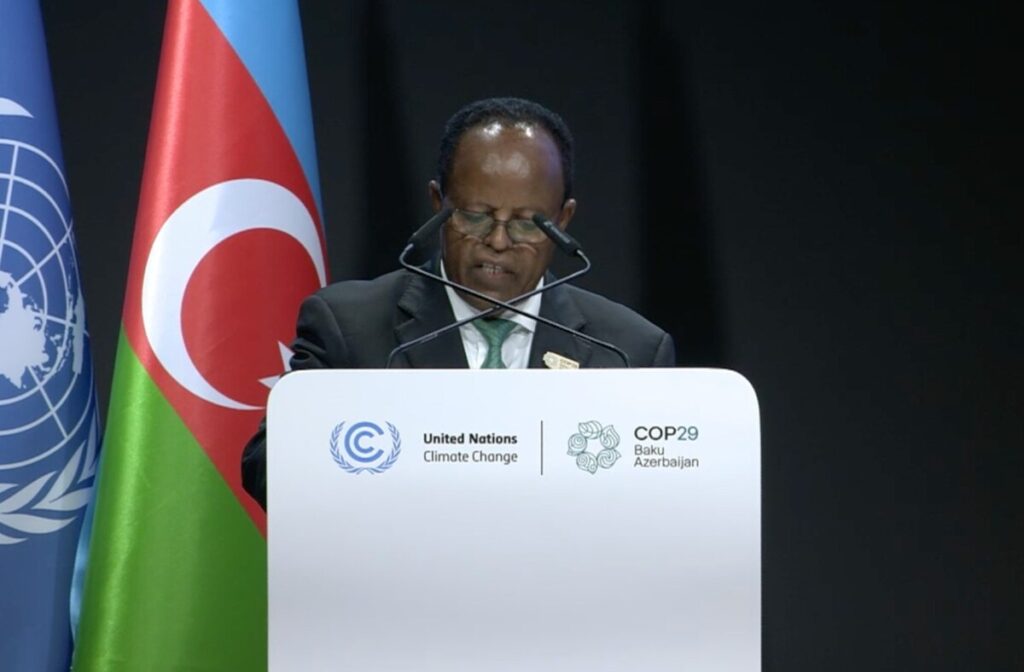
Ethiopia has also invested in hydro-based and other diversified clean energy projects, enabling the nation to meet its own energy needs while supporting its neighboring countries. Furthermore, the development of urban green spaces, particularly in Addis Ababa and newly developed tourism hubs, reflects the country’s commitment to sustainable urban and tourism development.
The Green Legacy Initiative, launched in June 2019 by H.E. Prime Minister Abiy Ahmed, has successfully planted 40 billion tree seedlings, increasing forest coverage to 23.6%. This initiative aims to combat deforestation and contribute to carbon sequestration, with the potential to absorb ten billion tons of carbon. By 2026, the initiative plans to plant a total of 50 billion tree seedlings. As reforestation becomes an integral part of Ethiopia’s culture, the Ethiopian Embassy in Sweden has been organizing Green Legacy programs. Each year, trees are planted at the residence of H.E. Ambassador Mehreteab Mulugeta in Sweden to combat climate change and foster a culture of sustainability.
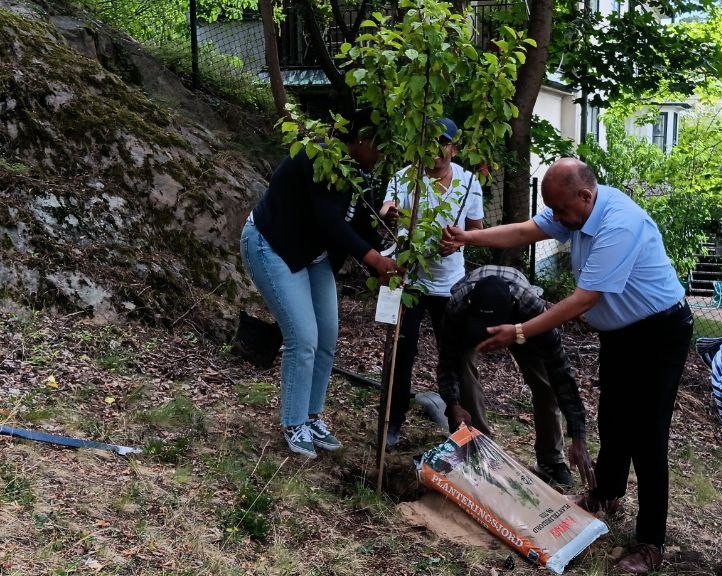
Green Collaborations with Nordic Countries
Ethiopia’s partnerships with Nordic countries continue to be instrumental in advancing its climate-resilient green economy. This collaboration was recently highlighted through Denmark’s pivotal role in supporting Ethiopia at COP29 and the broader Nordic commitment to sustainable development initiatives within Ethiopia.
During Ethiopia’s Climate Week launch ahead of COP29, Denmark’s Ambassador Designate, Sune Krogstrup, emphasized the critical role of climate finance in addressing global challenges. Denmark, which dedicates 60 percent of its climate aid to adaptation in vulnerable countries, has committed to facilitating Ethiopia’s access to global climate funds. By financing Ethiopia’s pavilion at COP29, Denmark created a platform to showcase Ethiopia’s achievements in combating climate change and foster impactful dialogues. Ambassador Krogstrup praised Ethiopia as a “green front runner,” inspiring other nations with its ambitious climate goals and innovative flagship programs.
This collaboration complements other Nordic-led initiatives in Ethiopia, such as the recent event held by the Nordic Embassies in partnership with Reach for Change Ethiopia. Focused on sustainable waste management, this initiative aims to empower local entrepreneurs to transform waste into valuable resources and enhance Addis Ababa’s waste management systems. With a long-term vision for a cleaner, smarter city by 2043, the program underscores the shared expertise and commitment between Ethiopia and the Nordic countries.
These partnerships align with Ethiopia’s broader climate goals, including achieving a climate-resilient green economy and boosting economic resilience through innovative local practices. Together, Ethiopia and its Nordic allies are paving the way for a sustainable future, demonstrating how international cooperation can drive meaningful progress in global climate action.
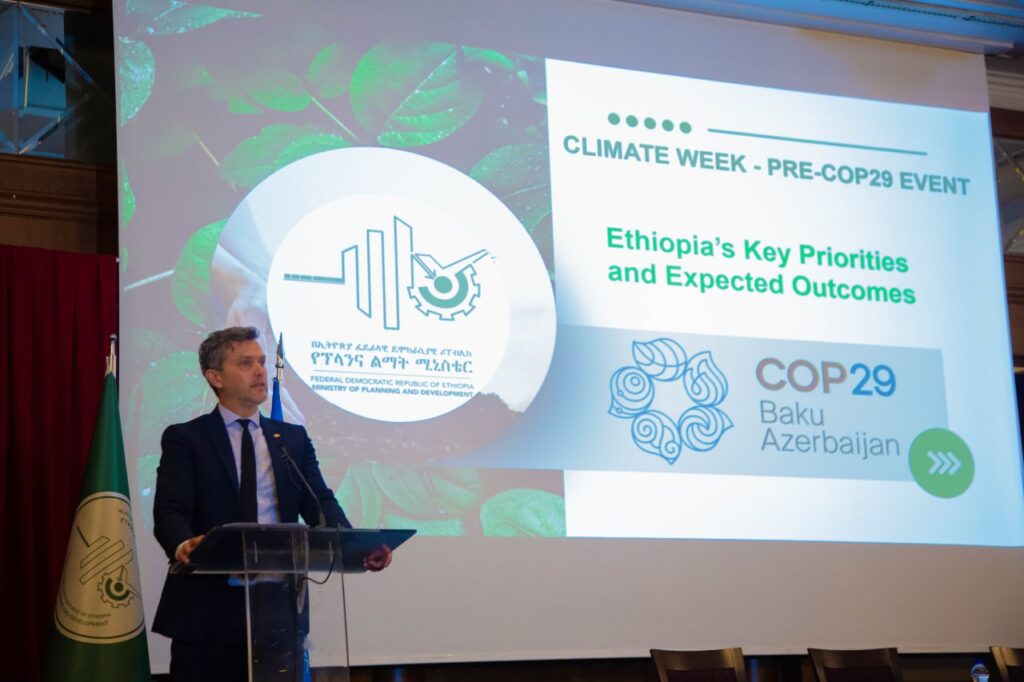
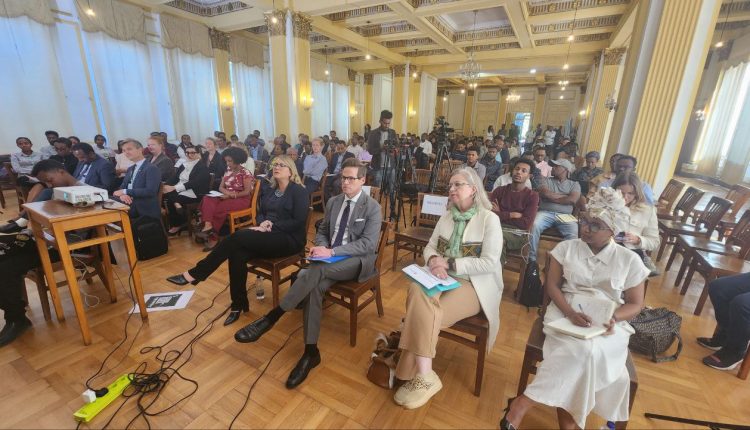
Climate Finance and International Cooperation
H.E. President Taye emphasized the need for increased and simplified climate finance to support developing nations. Ethiopia has allocated about one percent of its national budget specifically for land restoration and the Green Legacy Initiative. Ethiopia’s participation at COP29 underscored the importance of global cooperation and practical solutions to climate challenges.
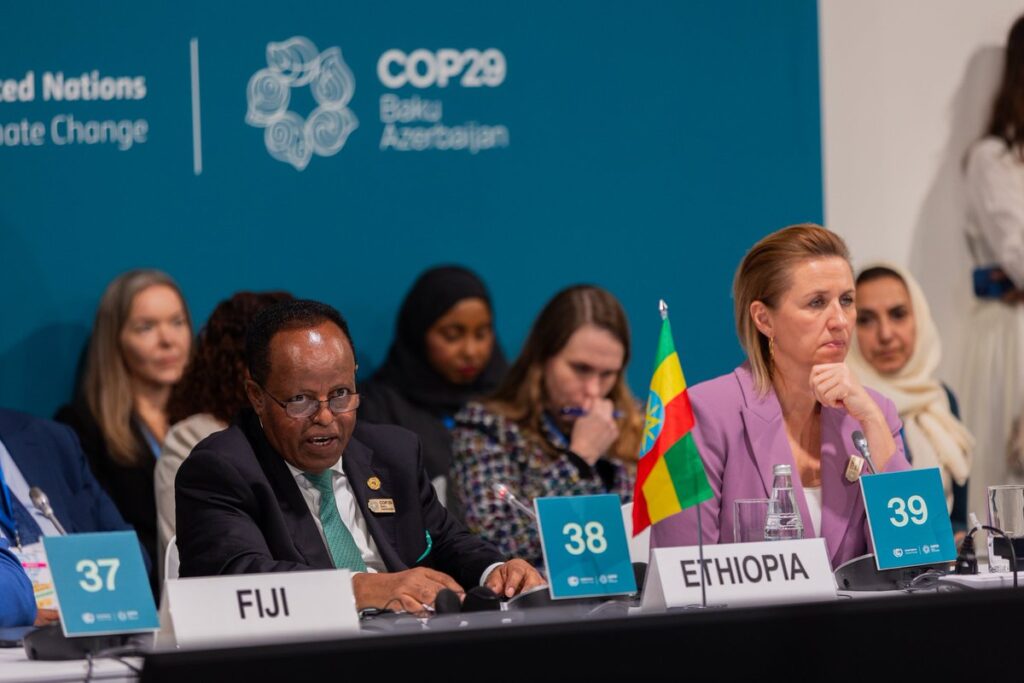
Ethiopia’s active engagement at COP29, coupled with its innovative initiatives, highlights the nation’s leadership in climate action. Continued support and collaboration with international partners are essential for building a stronger, sustainable future.
Article written by Dina Osman, Intern at the Ethiopian Embassy in Sweden.